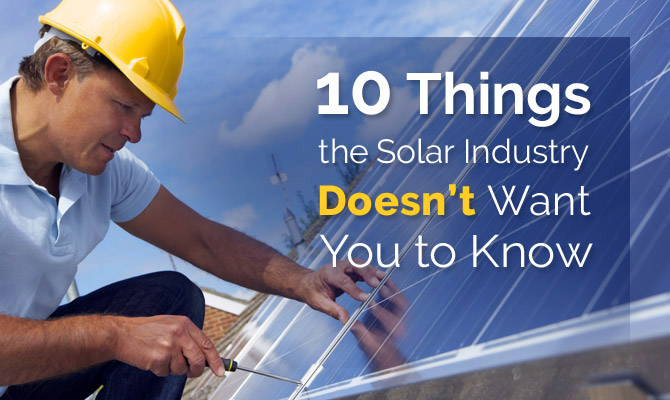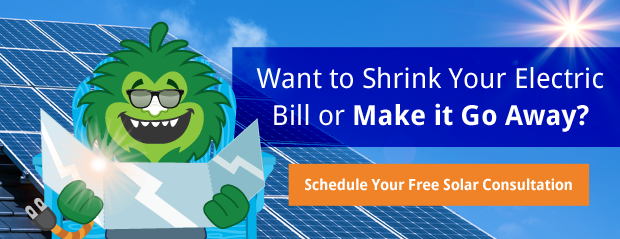This blog was originally published on October 19, 2015 and has been updated to reflect current tips and trends for homeowners considering solar panels in 2017.
With the continual rise in electricity costs, more and more Massachusetts residents are considering getting solar energy systems for their homes. Since solar energy is a relatively new technology, especially in mainstream life, the trick for consumers becomes understanding that you don’t know what you don’t know. Because Wattson Home Solutions believes in educating consumers about solar energy, we’ve compiled this list of important information that many folks in the solar industry would prefer to keep under wraps. Armed with this information, you’ll be able to make an informed decision on whether or not solar is right for you.
1. You may not be a good candidate for solar energy.
Believe it or not, not every home is initially a great candidate for solar energy. Some solar company salesmen will happily install a solar system onto your home and you’ll be paying for that mistake for years to come. Here are some factors to take into consideration:
- You might need to cut down some trees shading your home
- You may need your roof inspected to see if it’s structurally sound
2. Solar panels have almost zero maintenance.
Companies that lease solar panels often tout that if you lease solar panels, you don’t have to worry about their maintenance. The reality is that there hardly is any! There are no moving parts, so nothing needs to be replaced. It’s recommended to clean your panels several times a year to remove debris, which can be done with a garden hose either in the early morning or evening. Don’t wash them during the day when they are warm, because cold water on a hot system may cause them to crack.
3. Examine whether buying or leasing solar panels is right for you.
People who buy their solar panels instead of leasing them enjoy many more benefits (and avoid some headaches later on). However, only people purchasing solar panels qualify for the many government financial aid programs and incentives. Owning solar panels also increases your home’s value, while leasing them can be potentially burdensome when it comes time to sell your home. Make sure to do your homework, and choose the option that best suits your finances.
4. SREC’s and tax credits can go away at any time.
For every Megawatt-hour of electricity produced by your solar panels, an SREC, or Solar Renewable Energy Credit, is earned. In states like Massachusetts, these SREC’s are sold to utility companies who will pay homeowners for each SREC that they purchase. Additionally, Massachusetts homeowners are currently eligible for state and federal solar incentives that can help offset your cost.
While these programs and credits are great for homeowners, they’re susceptible to change. For example, the Federal Solar Tax Credit will end for home solar in 2021, and tax credits in four other states will expire this year. If you’re thinking about solar, don’t hesitate to schedule a free solar consultation. You don’t want to miss out on SREC’s or tax credits before it’s too late.
5. You’ll still lose your power during an outage.
We’re sure you’ve been thinking “If I create my own electricity, I’ll still have electricity during a power outage.” Unfortunately, that’s not the case unless you have a battery back-up system. Most homes that use solar aren’t entirely self-sufficient and must be hooked up to the grid. That’s because your system might produce more energy than your home needs and the excess power needs to go somewhere. Your solar system shuts off during an outage to protect utility workers from injury.
6. All installers aren’t created equally.
As solar panels become more popular, many people claim to know how to install them. Installing solar panels onto your home is a costly investment, so make sure to do your research and work with a trained professional. Despite having DIY kits on the market, there’s a lot more to installation than putting panels on your roof, like custom wiring. Although solar panels can be installed on almost any kind of roof, some companies may tell you solar won’t work on your roof. Take the time to find an installer who knows how to work with your roof-type to avoid any type of damage.
7. You might need a building permit.
Depending on where you live, you might need permission to install solar panels onto your home. If you do not have the proper permits, you might have to redo the entire project to meet certain local requirements.
8. Your panels’ effectiveness drops each year.
Although the drop isn’t very significant, manufacturers expect that a solar panel lowers its efficiency by about 1% per year. This means that at the end of 20 years, it could be running at 80% efficiency of what it once did. There is not that much research done on this subject because the majority of solar panels around the globe are only about 10 years old.
9. Solar systems aren’t one-size-fits-all.
Your solar system should be customized to your home energy needs. The number of solar panels you need depends on the performance of each panel, the size of your roof, and how many peak hours of sunlight your panels can expect to receive.
10. You need to watch out for the warranty.
Just as solar panel installers aren’t created equally, some warranties are better than others. Most manufacturers have a warranty period of 20-25 years, which is long enough to see your investment pay off and make a profit. For the warranty to be honored, the company still needs to be operating.
Now that you have the facts, it should be easy for you to decide whether or not to go solar. If you’re ready to do something about your rising energy costs, then solar might just be the right choice for your home.









